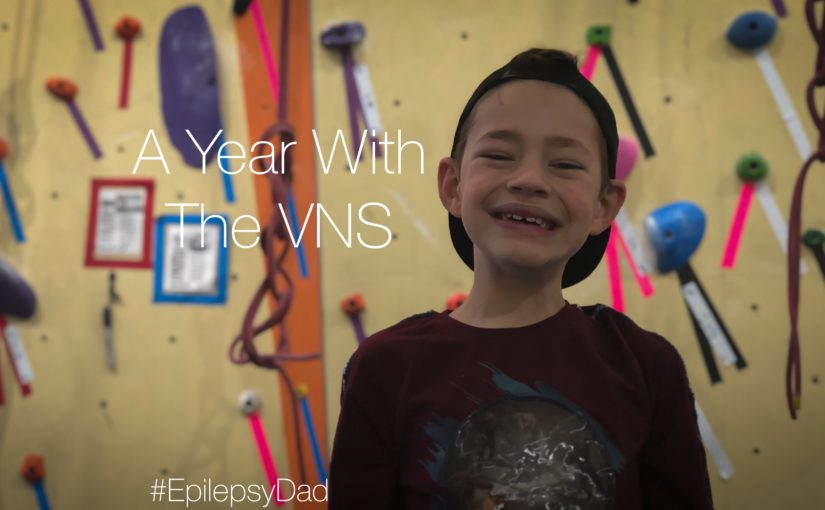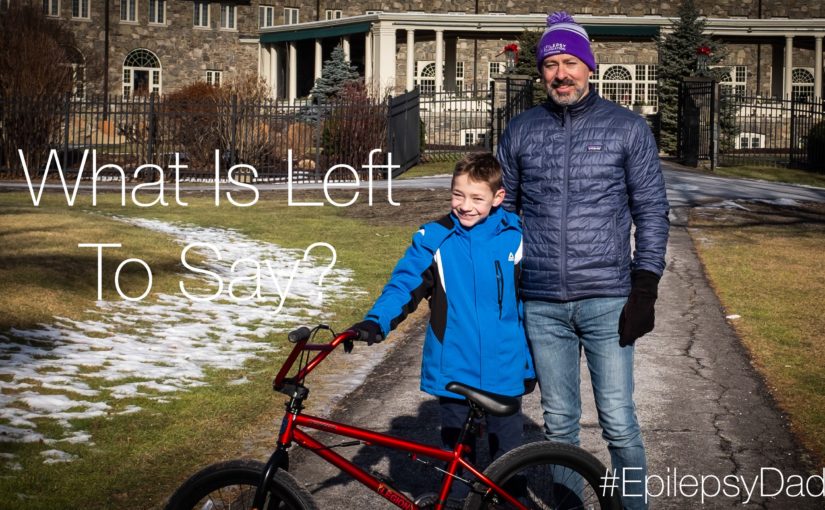Last December marked the one-year anniversary of my son’s VNS surgery.
Leading up to the surgery, I was a wreck. The week before, I had to give a preview of a presentation to one of our executives. I was not present and I stumbled through, relying heavily on the notes that I threw together on a handful of index cards. A few weeks later, my boss commented that she noticed how off I was. “You’re normally so put together. I don’t know what happened.” I did, I thought. My son was about to have surgery.
As I wrote about when we were contemplating the VNS, there is something about a surgery that is so daunting. With medications or the ketogenic diet, we can stop them if they aren’t working and the side effects eventually go away. But you can’t “uncut” my child. Once the scalpel breaks the skin, that’s it. It’s done. Even if the VNS is turned off or if the leads are removed, there is no going back. That thought weighed heavily on my mind right up to when they wheeled him back to the operating room.
Thankfully, we are near one of the best children’s hospitals in the country, and the surgery went smoothly. The device was turned on a few weeks later, and the waiting game began.
For the first six months, I didn’t expect much of anything to happen, which was great because not much of anything happened. Except for the vibration in his voice from the tingle of the VNS and the two visible scars, there was no change. We didn’t see any reduction in seizures, even as the doctors adjusted the intensity and frequency of the pulses.
At nine months, there was more of the same. His vocal cords seemed to adjust and his vibrato was less pronounced, but I could still hear it. Again, though, there was no seizure reduction.
A year after his VNS surgery, I would love to write that it took a year for the VNS to really start helping my son. I would love to write that he is seizure-free and that we were able to wean him off the ketogenic diet or remove a few pills from the handfuls of pills he takes every day. I would love to write that I sleep any better knowing that the VNS will protect my son from a catastrophic seizure and that I sleep much better at night.
But I can’t.
The obvious question is, knowing what I know now, would I have still gone through with the surgery?
The short answer is yes. The VNS helps a lot of people. At the time, we didn’t know whether it would work and I was and still am willing to try anything to reduce or prevent my son’s seizures. I’m disappointed that it didn’t do more for him, but it was worth trying.
Maybe someday it will help. Maybe it is already helping with seizures that we can’t see, or maybe it will someday prevent a really bad seizure.


